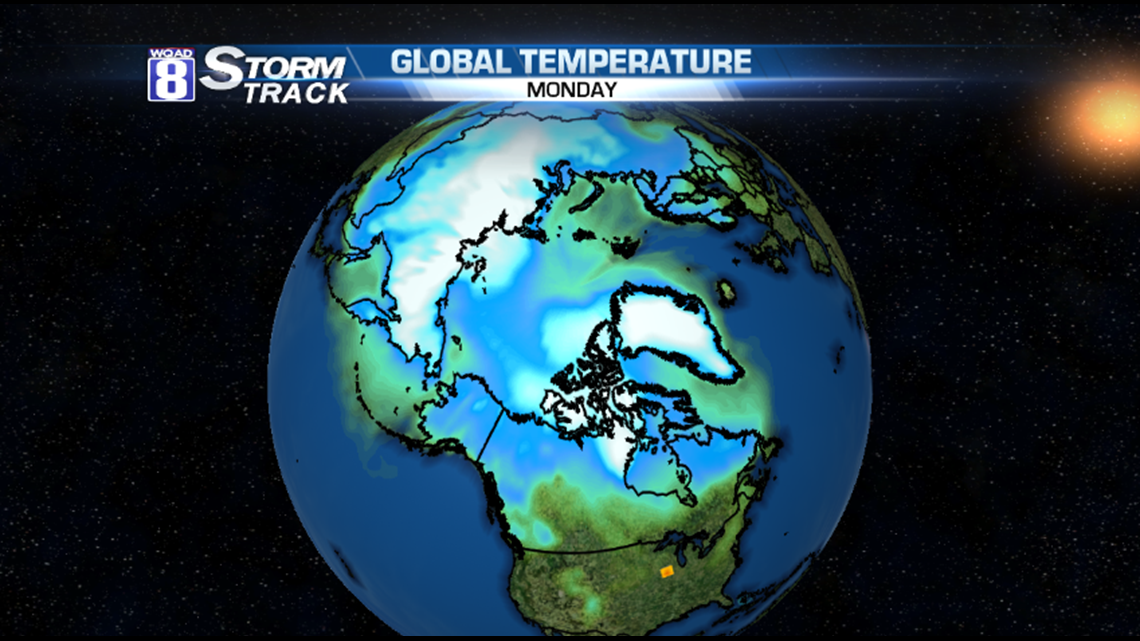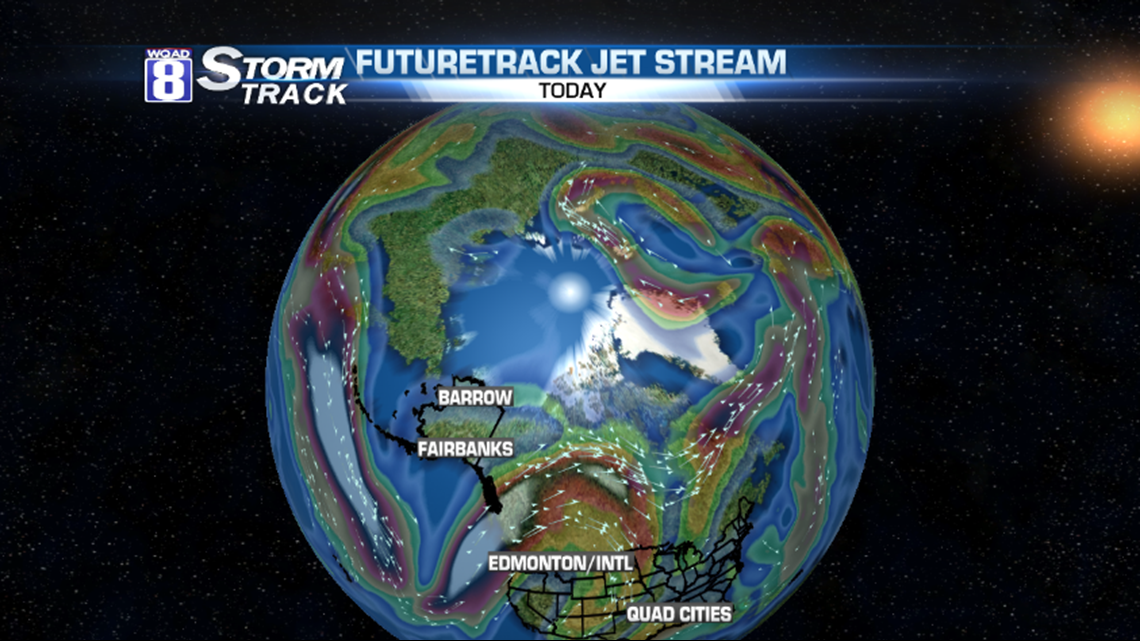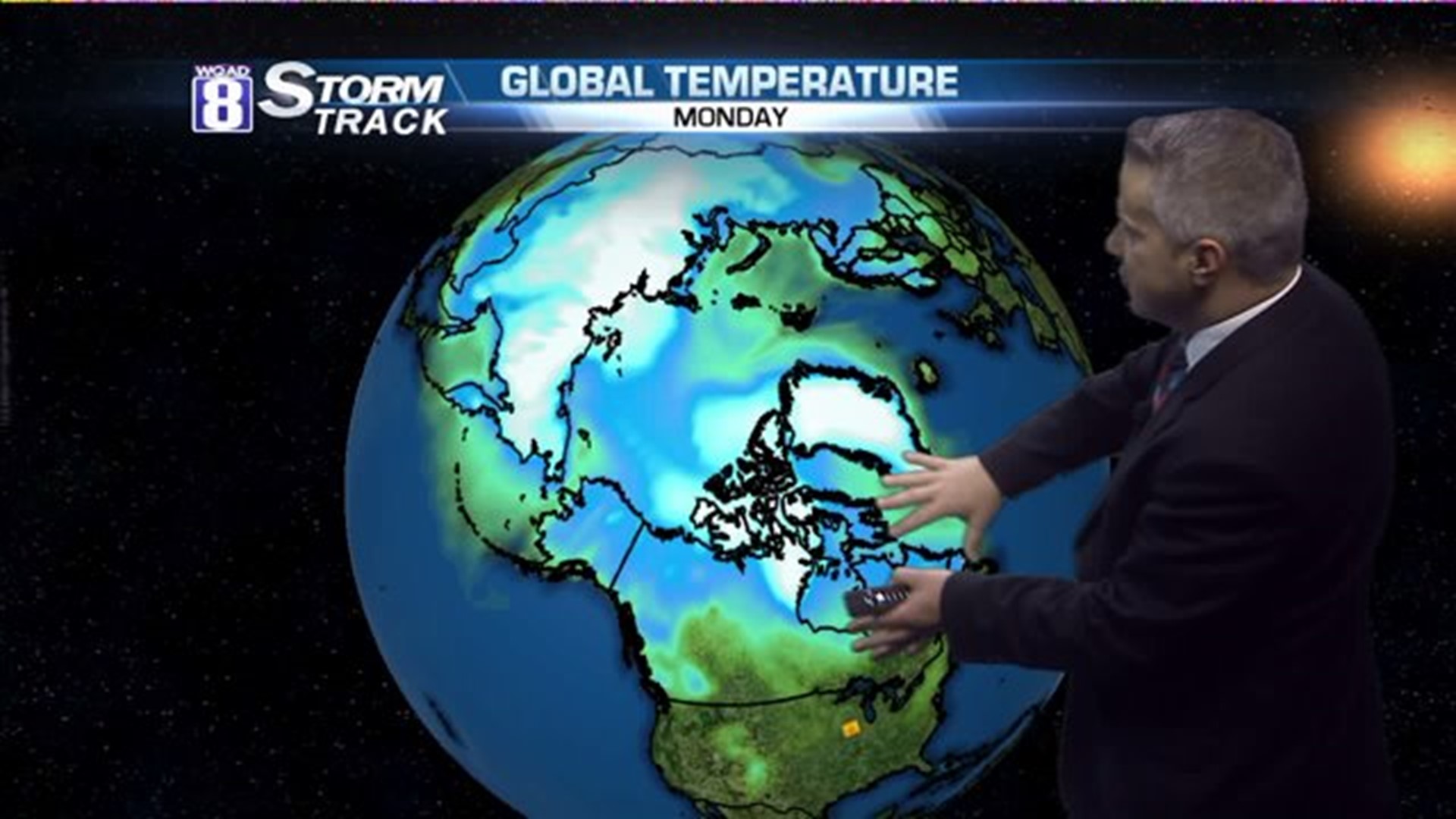Yesterday, I wrote about the extent of the warm air and why I believe it will last through Thanksgiving. Today, I wanted to get a little more into the science behind our current warm trend. Typically, the coldest air on Earth is either over the North Pole or the South Pole. As we go through Fall toward Winter, the North Pole gets much colder due to the increasing lack of sunlight.
- The Quad Cities will receive 10 hours, 5 minutes of daylight today
- Edmonton, Canada will receive 8 hours, 59 minutes of daylight today
- Fairbanks, Alaska will receive 6 hours, 59 minutes of daylight today
- Barrow, Alaska will receive 4 hours, 14 minutes of daylight today
Less daylight and a low sun angle makes the higher latitudes of the Northern Hemisphere colder this time of year. (At least that's how it should work.) But where we live in the middle latitudes of the United States, we're unseasonably warm. Makes us wonder where is all of the cold air? Looking up to Alaska and Northern Canada it's cold, but not unseasonably cold. We have to look farther away than that. The really, super cold air (polar vortex) is actually on the other side of the North Pole...in Russia. Much of Siberia will see below zero temperatures for highgs over the next few weeks! Even Northern China remains in the deep freeze...much colder than the same latitudes across the rest of the globe.


But why? Typically, the vortex of cold air swirls around the North Pole. The dips and rises in the jet stream are what bring us fluctuations in temperature in the winter. Some days are above freezing, some below. But this Fall, the coldest air developed over the very arid regions of Asia, instead of over the Arctic Ocean. This could be tied into global warming as the Arctic Ocean remains much warmer this Fall than it's been in previous years. Not to mention, we're coming off a near record minima of sea ice. As long as the Arctic Ocean remains mild, the most bitter cold should remain over Russia. In turn, we stay very mild.
So, the coldest of air isn't on top of the North Pole as it usually is. But will it stay that way? Probably not. It's going to move eventually, but getting all of that cold air to take flight and move thousands of miles takes an enormous amount of energy. And there are long-range signs into the first half of Winter that the most bitter cold air could stay over Eastern Asia. Current long-wave weather patterns across the globe point to a slight shift in that cold air for the first few weeks of December. But that shift may not cause the crux of the bitter air to slip over the North Pole entirely. Instead, we'll likely get a few chunks of the bitterly cold air, while the bulk of it likely stays over Siberia and Northern Asia.


The takeaway here is, I do expect our current mild air to continue for a few more weeks. A downturn in temperatures is expected, but not until the first few weeks of December. After that, we may get a few surges of bitterly cold air. Should we develop a cross-polar flow, we could get the super cold air to blow right over the North Pole into North America but that is a very small long-shot.
A White Christmas for the Upper Midwest? First guess: better than 50/50. But I'm an eternal optimist.
-Meteorologist Eric Sorensen

